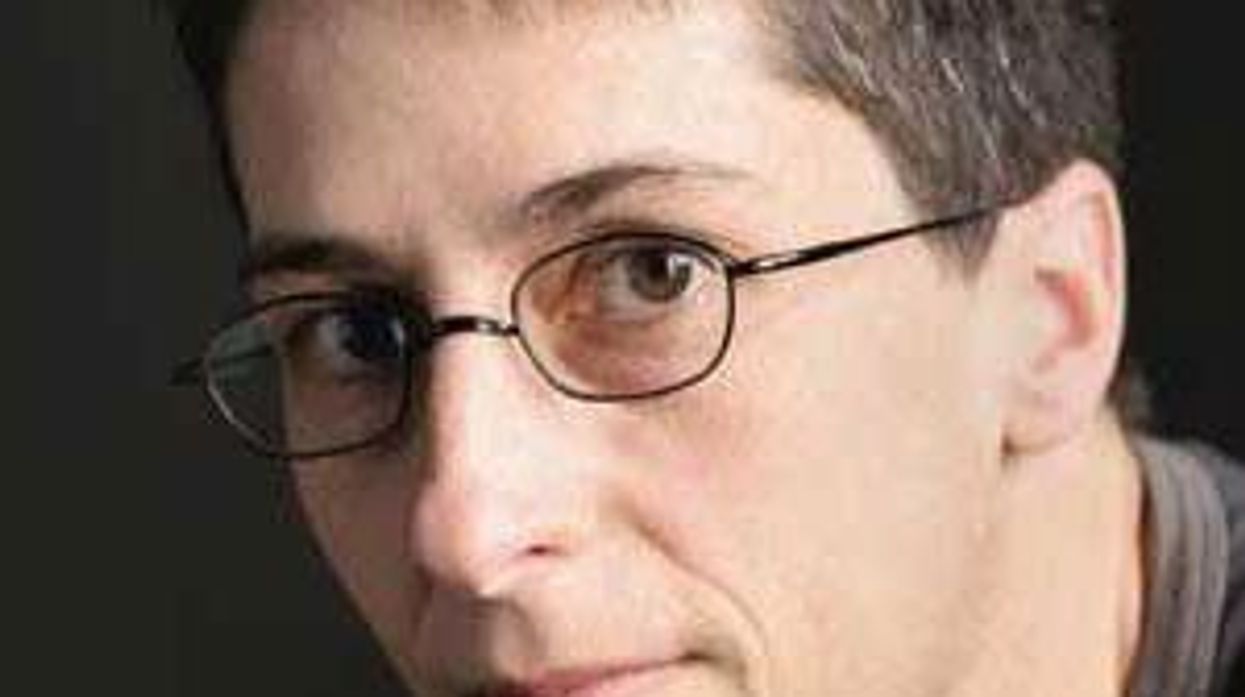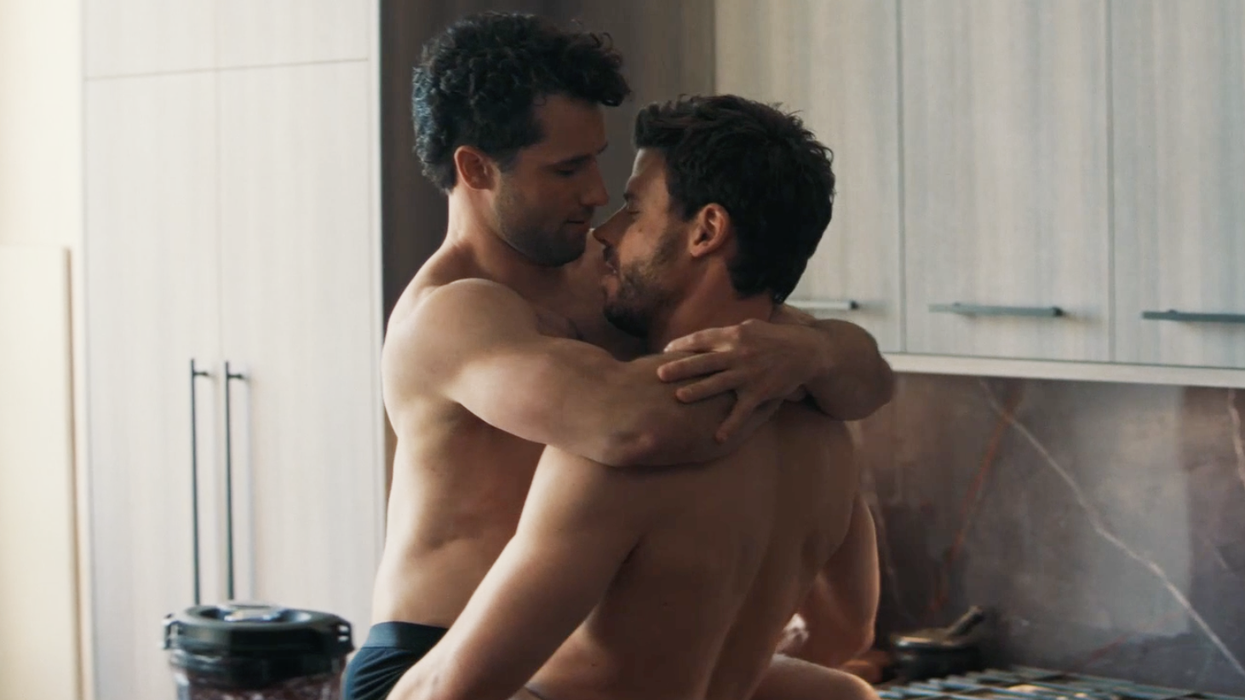Alison Bechdel’s first graphic memoir, 2006’s Fun Home, about her coming out, her father's sexuality and his presumed suicide, was incredibly difficult to write. But in retrospect it was the easy one. Easy, that is, in comparison to the follow-up. “My father had been dead for 20 years,” Bechdel explains.
Not so her mother, who is alive and well and at the center of Bechdel’s latest illustrated memoir, Are You My Mother? A Comic Drama.
“Writing about my mom was much more complicated,” she says. “We’re part of [our mothers]. We come out of them. We’re like the same person, whatever gender you are.” That deep connection to her mother made this project incredibly fearsome. “I’ve been daunted for the past six years.”
Adding to the obstacles, Bechdel has taken a medium known for relative lightness and used it to tell a nonlinear story that explores the darkest of areas, namely the history of psychoanalysis, her own therapeutic process, and the chilling lack of affection between her and her mother, which haunts Bechdel to this day. “This is a much less comic comic book,” says Bechdel, who stretches the form to tell parallel stories, often within one frame, all in the service of understanding her mother and healing their relationship.
It’s material that can provoke wildly divergent reactions. The New York Times gave the book two reviews, one a rave, the other an outright pan. Bechdel explains that the negative one was written by Dwight Garner, a critic who had previously praised a collection of her cartoons, Dykes to Watch Out For. “So I think he’s just not interested in psychoanalysis. I think people who are well-adjusted are not going to be interested in this story.” She adds, “Fortunately, there are a lot of people who are not well-adjusted.”
Are You My Mother? is a source of ambivalence even for its author. “I just talked to my mother 10 minutes ago,” Bechdel says while sitting in a Los Angeles hotel room on a stop along her recent book tour. “She was saying she thinks her friends are reading it but not talking to her about it. She’s not sure what’s going on.” Bechdel pauses. “I mean, it’s weird.” She fears that she has forced her mother into an unreasonable position, having to endure a very public portrayal of her life.
It could be said that Bechdel’s mother was as much an actor in all of this as she (see: “We’re like the same person”). Take, for example, Bechdel’s interpretation of the reason she uses drawings instead of prose as her way to tell stories: “I feel like I kind of became a cartoonist as a way of diluting my mother’s scrutiny because she was the writer. Both my parents were English teachers. I felt like she was just this powerful, critical presence and I didn’t want to have my writing destroyed by her. So I found a way to write that she really couldn’t see, kind of like how teenagers have those high-pitched ringtones that adults can’t hear.”
Bechdel’s wise, wry perspective, so familiar to fans of her long-running comic strip, comes through just as much in person as it does on the page. And the Pennsylvania native, who lives in Vermont with her girlfriend of four years but is currently spending a few months teaching in Chicago, looks pretty much as readers of Fun Home would expect — preternaturally slim, dressed in head-to-toe black topped off by her signature, horn-rimmed Elvis Costellos.
Truth be told, Bechdel looks a bit like every character she’s ever drawn, probably because she’s the model for all of them, taking photographs of herself in whatever position a character will take. “It’s like I use myself as a skeleton and then flesh it out with details of other characters,” she explains. “It’s kind of like Being John Malkovich, when he goes through his own portal.”
Bechdel isn’t likely to return to the portal that put her on the map, Dykes to Watch Out For. She took a break from the cartoon strip in 2008, thinking she’d return to it but now that seems unlikely. “I feel like I didn’t end Dykes really well,” she says, “it just kind of trailed off. I kind of lost my mojo for it.”
Bechdel wrote Dykes for 25 years, beginning when she was 23, in 1983. For a long time she was motivated to keep it going by a need to see queer characters in the culture. No more. “I don’t feel that same urgency. I mean this whole Obama marriage thing, it’s such an unimaginable landscape. I never would have imagined that we would be where we are today when I was 20.”
She also never imagined that her life would be fodder for a musical, but Bechdel has signed off on letting Fun Home become just that, in the hands of playwright Lisa Kron (The Five Lesbian Brothers) and composer Jeanine Tesori (Caroline, or Change).
She had rebuffed offers for a movie, fearing the worst. “I thought about what it would be like to have a really, really bad movie about my life, about this intimate part of my life,” she says. “I didn’t say no, but I decided how much my soul was worth and I asked for a lot of money.” Instead, they said no. But she agreed to the musical, figuring it was less of a risk. “If it was a bad musical, how many people would see that?”
Bechdel saw a reading of the musical at the end of last year. “I really thought it was amazing. But, you know, I have no objectivity because it’s a play about my life.” A workshop will be performed at the Public Theater in New York in the fall.
Bechdel isn’t revealing what her next project will be, and she may not be entirely sure herself but it’s certain to explore a familiar topic. “I want to keep strip-mining my family,” she says, smiling. “I feel like I have one more family memoir at least that I have to get out of my system. I’m just really interested in family as a concept.” Bechdel says that when she was a “lesbian feminist” in her 20s, she dismissed family as a dysfunctional construct. But now she sees it differently. “An intact, functional family is an amazing thing.”
To prepare, she’s been exploring it as if she were an anthropologist. “I’m starting to read Margaret Mead. She looked at family from an ethical/logical point of view. Plus she was a big dyke.”
Meanwhile, Bechdel’s mother just might be settling into her new normal. “I feel like she’s excited about the book, like I’ve given her this fun thing,” the author says. “Even though she’s not happy about the content of it and won’t talk to me about that.” But her mother is supportive in her way. “She’s able to go the bookstore and say, ‘This is by my daughter.’ And I think she feels like it’s her achievement as well. That’s what I really love.
“And it is her achievement. She’s the person who enabled me to write. And that’s kind of what the book is all about.”























































































 Cindy Ord/Getty Images
Cindy Ord/Getty Images

























